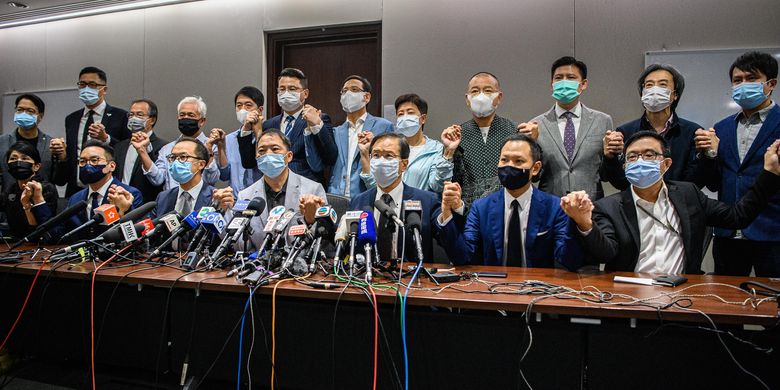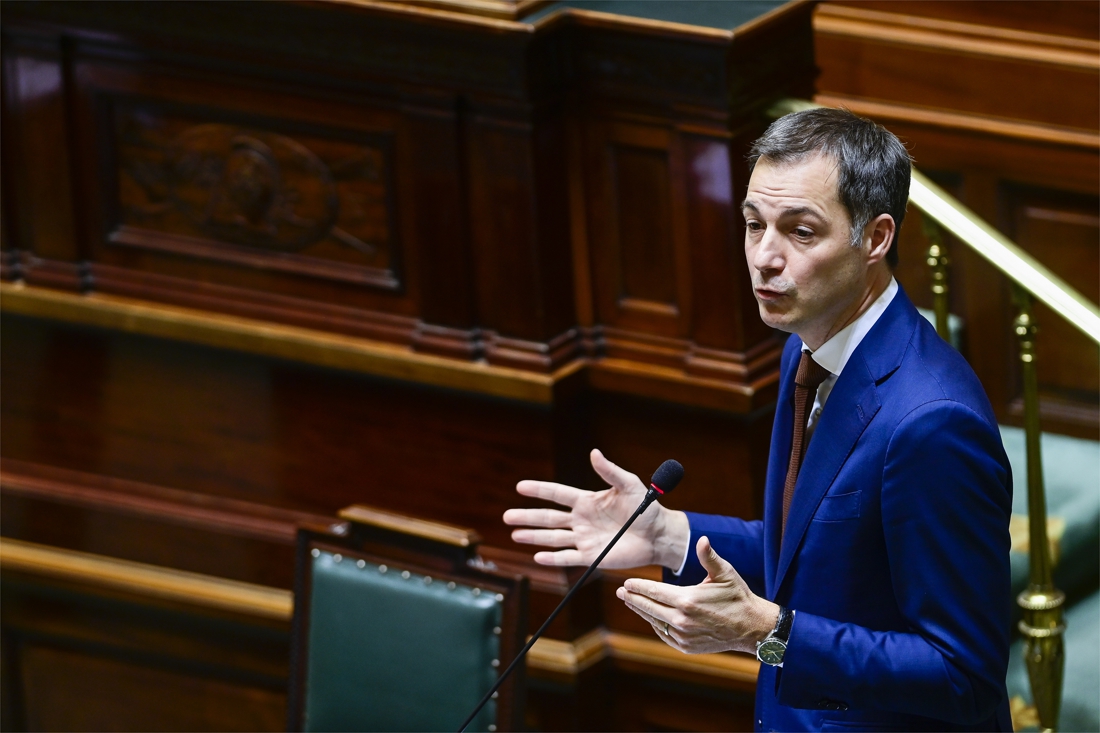HONG KONG, KOMPAS.com – China on Thursday (12/11/2020) warned resignation bulk member parliament pro-democracy of Hong Kong was a form of “blatantly challenging” government authority over the city.
Fifteen legislators decided to resign from the assembly in protest at the dismissal of 4 of their compatriots approved by Beijing, leaving the assembly silenced by loyalist government.
Resignation it comes as the city’s pro-democracy movement has been pressured by ongoing attacks since Beijing took effect National Security Act broad this year.
Half of the group’s pro-democracy legistrators had kept their word by Thursday afternoon, sparking an angry response from the Hong Kong and Macau Affairs Office in Beijing.
Also read: Hong Kong’s Opposition Mass Retreats, the US Threatens China with Sanctions
“This once again demonstrates their stubborn confrontation with the central government and a blatant challenge to the powers of the central government. We strongly condemn this,” said a statement by the authorities. AFP on Thursday (12/11/2020).
“We have to inform these opposition lawmakers that if they want to use this means to support a radical fight, and beg foreign troops to intervene, and once again drag Hong Kong into chaos, that’s a miscalculation,” he continued.
Inside the assembly, government loyalists discussed the no-debate transport bill that has been a sign of Hong Kong’s semi-democracy in recent years.
“Hong Kongers are preparing for a very long time, when there is only one voice in society,” pro-democracy lawmaker Lam Cheuk-ting told reporters.
“If you are an opposition, be prepared for greater pressure,” he said.
Also read: Hong Kong Pro-Democracy Members of Parliament Plan Mass Resigns
Hong Kong Chief Executive Carrie Lam, a Beijing nominee, was given the power Wednesday to remove legislators whom he deems not patriotic enough without the help of a city court.
Lam immediately capitalized on that power by kicking out 4 lawmakers who he said posed a threat to national security, and sparked criticism both at home and abroad, with the United States threatening further sanctions against regime figures.
Chris Patten, the city’s last colonial governor, said the move showed Beijing’s “total hostility to democratic accountability, and those who want to defend it”.
Chinese foreign ministry spokesman Wang Wenbin rejected the international criticism.
“We urge those concerned to strictly adhere to the basic norms of international law and international relations, to stop all forms of interference in China’s internal affairs, of which Hong Kong affairs are a part,” said Wang.
Also read: Seeking Asylum to US, Hong Kong Activist Tony Chung Arrested
The moment of the exodus of opposition lawmakers is one of the last forums for dissent in Hong Kong.
The media have also been silenced there by the National Security Act and Beijing loyalists, which target the legal system that has supported the city’s success as a financial hub.
Meeting restrictions were also carried out to cover large meetings that rocked the city since last year. Part of the reason is the corona virus pandemic.
Millions of people took to the streets in peaceful protests over a lack of political accountability and what the demonstrators saw as arrogant policies.
Violence and vandalism erupted at several demonstrations, and more than 10,000 people were arrested.
Also read: Milk Tea Alliance: Thai Demonstrators Copying Hong Kong Protest Tactics
Beijing control
Hong Kong’s leaders are elected by a pro-Beijing committee, but half of the 70 legislative seats are elected directly, offering the city’s 7.5 million residents the rare opportunity to have their voices heard at the ballot box.
Fights and protests routinely break out in assemblies, with the armed pro-democracy minority often using filibustering and other tactics to try to stop bills they are opposed to.
Meanwhile, the expulsion and resignation of lawmakers will only leave 2 legislators outside the pro-Beijing camp, both of whom are incompatible with the two blocs.
Also read: Thailand Demo Similar to Hong Kong Demo, Here Are 5 Similarities
“It appears that Hong Kong control has now been exercised by the Chinese Communist Party authorities in Beijing,” said political analyst Willy Lam.
Willy Lam also said that the basic rights enshrined when Britain returned the city to China in 1997 were “critically endangered”.
Beijing’s move “has got to the bottom of it”, said Claudia Mo, one of the resigning lawmakers.
“It’s ruled by decision. What’s the point of going to work every morning thinking ‘am I getting kicked out’?” said Mo to AFP.
– .


